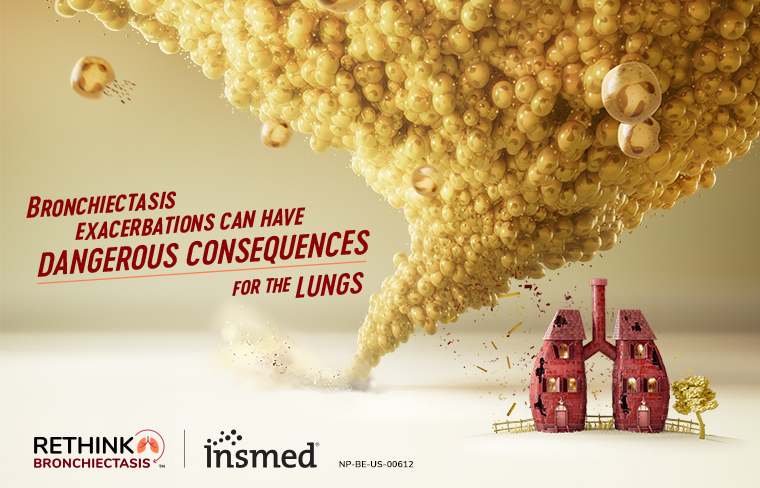The following content is part of a paid sponsorship and is not an endorsement by CHEST nor does it reflect the views or opinions of CHEST.

Join Insmed for a Learning Theater presentation to learn more about bronchiectasis exacerbations and their management. Lunch will be provided.
This is a non-CME event and does not qualify for CME or CE, or MOC credit. This event is not part of the official CHEST Annual Meeting 2024 conference sessions. This event is not an endorsement by CHEST and does not reflect the views or opinions of CHEST.
While bronchiectasis is often identified in patients with other lung diseases, like COPD and asthma, it is a separate chronic lung disease usually marked by permanent, abnormal dilation and persistent inflammation of the airways. Patients with bronchiectasis often suffer from periods of worsening symptoms, or exacerbations, which can damage the lungs and contribute to the burden of the disease, affecting health-related quality of life. In scientific literature, bronchiectasis has been characterized as a vicious cycle or vortex consisting of 4 primary drivers: chronic airway inflammation, impaired mucociliary clearance, lung destruction, and chronic airway infection. The role of inflammation in driving this condition continues to be a subject of research, with increasing evidence implicating neutrophilic inflammation in perpetuating the vicious vortex and contributing to recurrent damaging bronchiectasis exacerbations. During this presentation, participants will explore the burdens and underlying causes of bronchiectasis exacerbations, with a particular focus on current management strategies. This session will also delve into the key drivers of bronchiectasis, highlighting the critical role of inflammation in disease progression.
The bronchiectasis expert leading the presentation will be Brian Morrissey, MD, from University of California, Davis. He will take participants on a journey into the functions of the neutrophil, emphasizing how the mechanisms intended to defend against infection can be destructive during bronchiectasis. He will review data linking the inflammatory process to bronchiectasis exacerbations and worse clinical outcomes for patients with this disease.
To learn more about bronchiectasis and bronchiectasis exacerbations, join Insmed at Booth #939. We are offering a variety of resources and events this year, including an immersive exhibit featuring bronchiectasis research, a 3D lung model, interactive explorations of the science, and more.
NP-BE-US-00612






